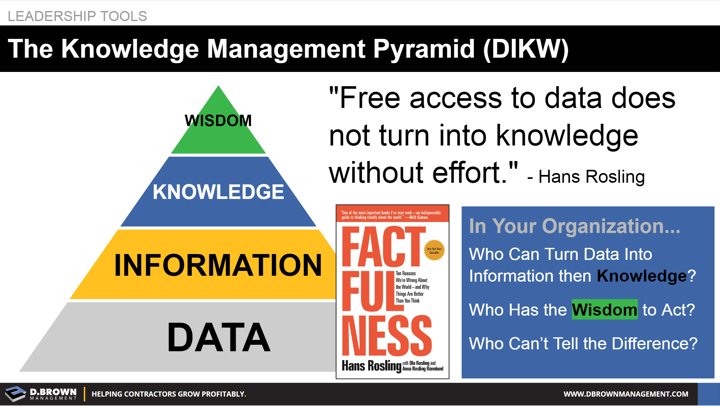There are several models that can help you visualize the differences between different types of “knowledge” in your organization and an individual’s ability to work at different levels.
One of these is called the DIKW Pyramid for:
- Data: Simply signals and other inputs.
- Information: Data that has been organized into a useful format.
- Knowledge: Information put in context.
- Wisdom: Knowledge turned into decisions and action.
A closely related concept is "Situational Awareness" levels of Perception, Comprehension, and Projection.
Think about your best project team members, including conceptual estimators who are great at the preconstruction stage. They have phenomenal abilities to take a wide range of data and turn it into a complex 5D model of the project in their heads that they make great decisions from.
Back up to a world view of data vs. wisdom with the book Factfulness.

